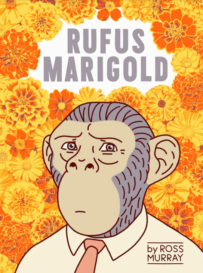Readability & The Man Booker Prize
So the judges of the Man Booker prize 2014 have been announced, accompanied by a good old re-hash of the ‘readability’ argument unwittingly initiated by Dame Rimington in 2011. Is it ‘dumbing down’ to reward authors who write enjoyable books? Essentially, books are written to be read; just like any art form authors need to entertain and move their audience. But we already have a competition for the most readable books – bestseller lists. Let’s have a look what they show us.
- Surprise surprise, sex sells! Fifty Shades of Grey is now the best selling book in Britain since records began.* Depressing.
- People like magic. Re-engaging millions of children and parents with reading, Harry Potter is close behind the heels of Mr Grey.
- Someone should really write a book about sex and magic, that would be very readable. Say what? Geeky 90s A Game of Thrones is now an international bestseller?

Only (half) joking. Not all readable books are great writing, nor do they pretend to be. To make a comparison, I like to eat chips and cheese, but I also enjoy steak tartare. I am happily aware the former will not lead me to a Masterchef victory. In addition, more people would probably enjoy the chips – does this make it better food? To return to nourishment of the mind, what does make great writing?
- A plot you are drawn into hook, line and sinker.
- Engaging characters with whom the reader may empathise.
- Powerful themes or conclusions.
- Beautiful language.
- A world the reader wants to inhabit for the several hours necessary to read the novel, be it rural Devon or post apocalyptic New York.
Novels with these qualities are likely to be strong and readable, to succeed. In the right hands, these novels could even be great. However, in order to encourage and support progress in contemporary fiction we also need books that have another quality:
- Experimentation. Brave writing that stretches the rules of content, language, form or theme.
Completely new genres are rarely forged; I am not suggesting that every author exploring interesting, new ideas will produce the next Ulysses, and experimentation can be playful or witty as well as challenging. But I do believe it crucial that prizes such as the Booker reward, and thereby promote, innovative writing, even if it is more niche. It is not elitist to reward brave literature, it is essential to prevent stagnation of the novel.
Independent publishers also play a part in this. Because companies tend to be smaller, and not tethered tightly to the demands of shareholders, they can afford to invest in more experimental writing. In turn, because the quality tends to be high, and the relationship between publisher, author and reader closer, audiences are lead to try other new authors and genres. This mutually beneficial cycle benefits author, publisher, contemporary fiction as a whole, and most importantly, the reader.
*Combined sales of physical and ebooks.
Louise Janes
Image: blogspot.com
Tags: A Game of Thrones, chips and cheese, Fifty Shades of Grey, Harry Potter, Man Booker prize 2014














